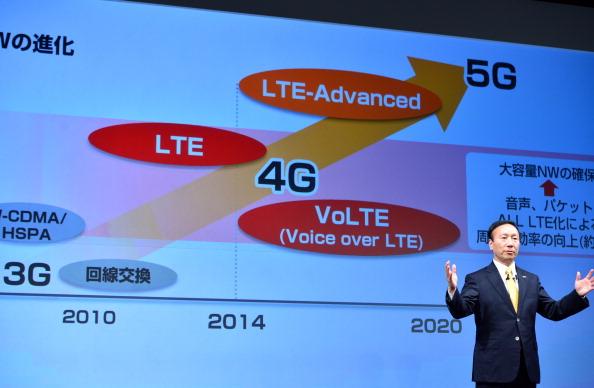Japan’s largest mobile telecoms provider NTT Docomo joined a growing list of governments and companies around the world that have banned Huawei from participating in the rollout of 5G networks.
Jun Sawada, president and chief executive officer of NTT Docomo, confirmed that the company will not buy Huawei equipment for its 5G network in an interview with Japanese news agency Kyodo News in Barcelona, Spain, on Feb. 26. The Japanese firm was in the Spanish city to take part in the annual Mobile World Congress, which began Feb. 25 and lasted for four days.
Sawada explained the reason behind the decision: Docomo could possibly lose business engagements with the U.S. government and U.S. corporations, as the United States has continually warned of the security risks of Huawei products and largely shut out the company from its market.
The U.S. administration has said close ties between Huawei and Beijing leave the company’s products, including 5G network equipment, susceptible to espionage by the Chinese regime.
Meanwhile, Docomo has plans to set up a research center in California’s Silicon Valley in July, according to Kyodo News.
According to a press release on Docomo’s website announcing its participation in the Mobile World Congress, the company plans to pre-commercially launch 5G service in Japan in September this year, with an official launch slated for 2020.
Sawada’s statement came as a confirmation to a December 2018 report by Japanese media Nikkei that Docomo, as well as two other main telecoms operators in Japan, Softbank and KDDI, had plans to reject Huawei’s 5G equipment.
Currently, SoftBank is the only major telecom provider in Japan that uses equipment from Huawei, as well as its domestic competitor ZTE, for its 4G network, according to Nikkei.
5G is the next generation of wireless technology, which experts say could revolutionize many industries, spur economic growth, fuel innovation, and improve living standards. Consequently, 5G networks are set to become part of each country’s critical infrastructure.
So if the networks fail or are deliberately sabotaged in a cyberattack, the consequences could be significantly more serious.
“What makes people concerned is that you are not going to use 5G only for smartphones and consumers; you will connect, over time, infrastructure that is at the very core of our societies,” said Ericsson’s Thomas Noren to Reuters on Feb. 27. Noren is head of 5G commercialization in business area networks at the Swedish telecoms firm.
In the United States, 5G networks will be built mostly from equipment supplied by Ericsson and Finnish firm Nokia, according to Reuters.
Fan Shih-ping, a professor at the Graduate Institute of Political Science at National Taiwan Normal University in Taipei, also spoke of the dangers of Huawei equipment on a global scale during a recent interview with the Taiwan branch of The Epoch Times.
“Huawei’s high tech pushes forward digital authoritarianism,” Fan said, explaining that Beijing utilizes technology to help it impose its rule, such as the Golden Shield Project, which created the internet firewall that has censored information from the free world, and the Skynet system, whereby the Chinese regime plans to blanket the entire country with surveillance cameras that utilize artificial intelligence to monitor citizens. He added that Huawei has played an important role in those two technologies.
The Chinese regime also exports these technologies to developing countries (Huawei surveillance cameras in Ecuador) and authoritarian regimes (ZTE’s smart-ID program in Venezuela) around the world.
“If this surveillance technology is pushed forward globally, it would be a huge threat to democratic countries,” Fan concluded.
Reuters contributed to this report.



